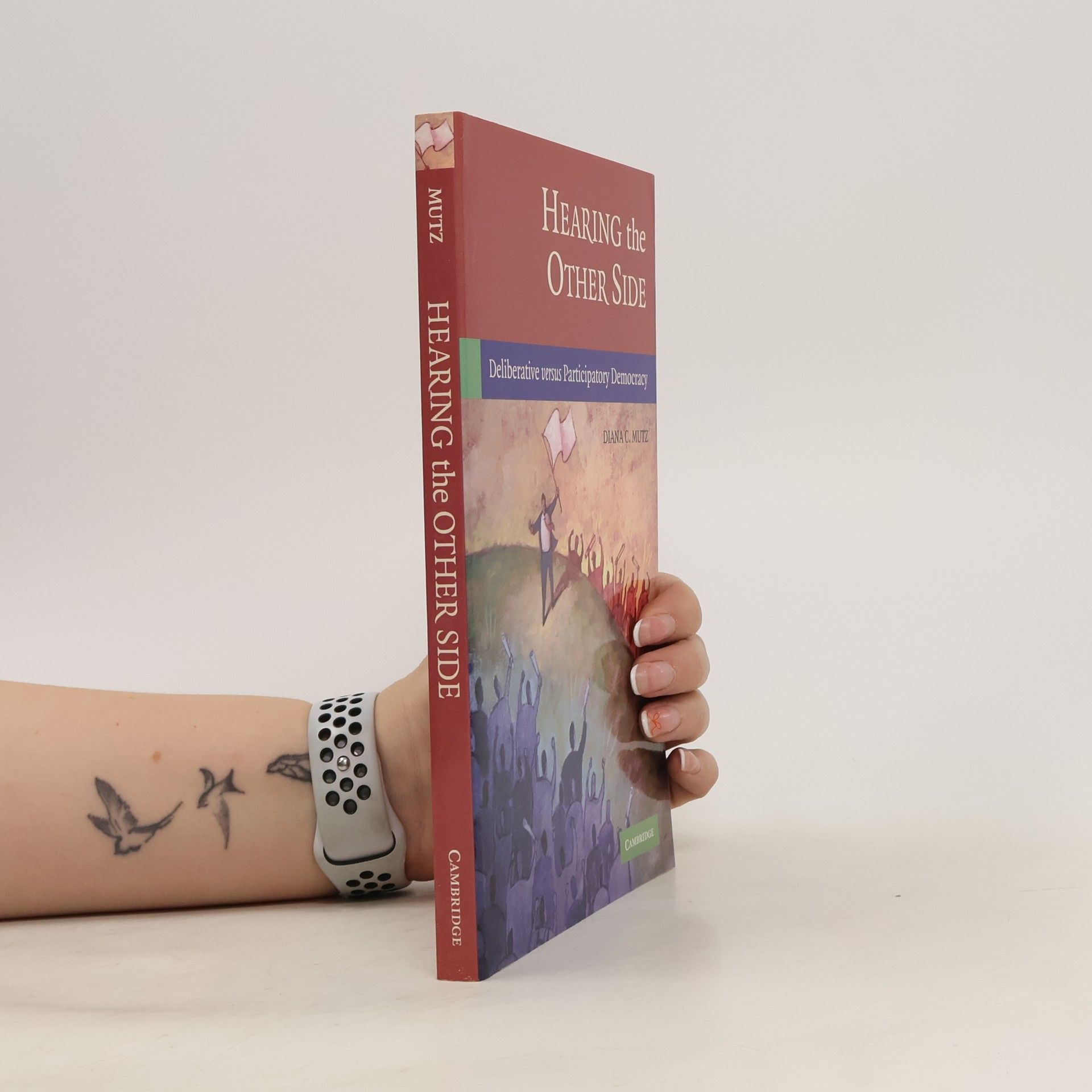Focusing on the dynamics of political discourse, the book explores how interactions with differing political views can impact individuals and society. It delves into empirical research on the effects—both beneficial and detrimental—of engaging with opposing perspectives. By examining these interactions, the work sheds light on the complexities of fostering dialogue across political divides and the implications for political theorists and everyday citizens alike.
Diana C. Mutz Knihy



Impersonal Influence
How Perceptions of Mass Collectives Affect Political Attitudes
- 356 stránek
- 13 hodin čtení
Exploring the impact of societal perceptions, this book delves into how individuals are influenced by the collective opinions surrounding them. It examines the psychological and social dynamics at play, revealing how these perceptions shape behaviors, beliefs, and decision-making processes. Through various examples and insights, the narrative highlights the importance of understanding the power of public opinion in personal and communal contexts.
This book challenges the conventional wisdom regarding how Americans form opinions on international trade. While traditional economic theories focus on personal self-interest and financial outcomes, the author adopts a psychological perspective, illustrating how individuals perceive international trade through interpersonal relations. Drawing on psychological theories and original research, the findings reveal that many Americans view trade as a competitive arena between the U.S. and other nations, framing it as an "us versus them" scenario. Those with this perspective support trade when they believe Americans emerge as "winners," seeing it as a means to assert dominance over foreign competitors. Conversely, others perceive trade as a way to foster peaceful relations among countries, akin to gift exchanges that strengthen interpersonal bonds. The book emphasizes how orientations toward in-groups and out-groups significantly shape opinions on foreign trade. By understanding these psychological factors, the author suggests that we can achieve lasting economic and societal benefits, highlighting the importance of public sentiment in shaping trade policies and international relations.